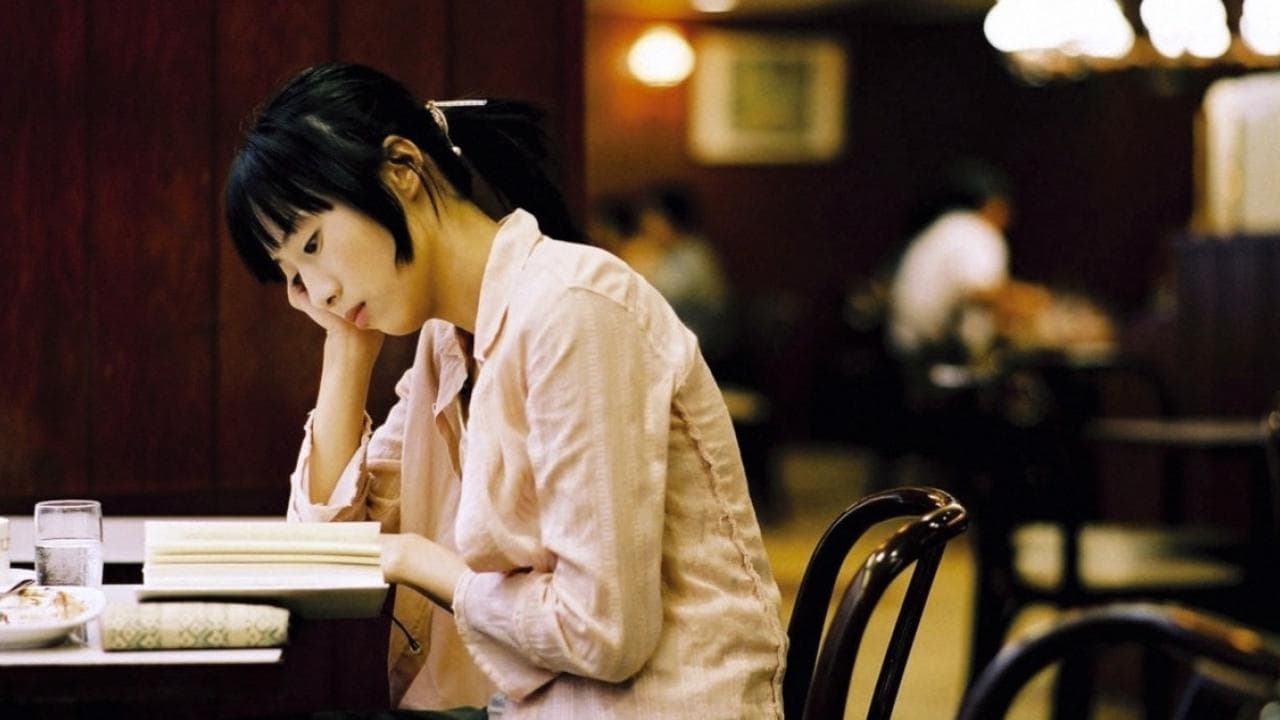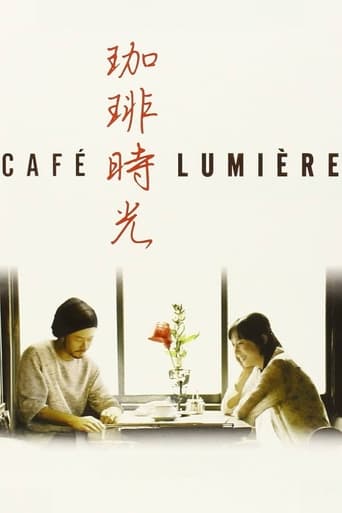

There are definite touches of Ozu in this film, with much of the action taking place in the background or middle ground. But, it's also a film in its own right, using just the minimum of hints to make it more than just a collection random montage of scenes. It's as if we were privileged to spend an hour or so peeking intermittently into another person's life, but not really expecting to come away with a neatly packaged story, only an appreciation for life as it is. Even so, some interesting themes seem to float in and out. There is the clock/timepiece ubiquitous presence and the absence of words that is as meaningful as a whole conversation. I was intrigued by the possibility that Yoko (Yo Hitoto) felt, on a mythical level, that, like the changelings, she was switched out at birth, though it's not clear whether she felt like the baby that was kidnapped or the goblin ice-changeling left in its place. But it might explain, in a small way, why she was so determined to raise the yet-to-be-born baby on her own--she wanted to make sure that the goblins do not get a chance to switch babies this time. There are other references to fecundity and the birthing process, such as Hajime's drawings that show him as a fetus in the middle of a subway womb, holding Yoko's gift timepiece. Hajime's drawing is, in fact, an anime-like depiction of the many shots of trains pulsing around a tranquil waterway that pulsates like a watery womb, showing nothing yet of what it could bring forth--much like this film. I do have to confess that I went,"Huh?" when the movie ended. Then, that lively song (was that by Yo Hitoto--it's good?) came on, with more energy than the whole of the movie, and made me understand that I do appreciate this type of film once in a while, but not as a steady diet.
... View MoreHow about walking into a minefield next, Mr. Director? This story, according to writer director Hou Hsiao-Hsien, is a tribute to the great Japanese director Yasojiro Ozu, (selected Ozu films that are essential viewing: Tokyo Story, Late Spring, Equinox Flower, I was Born But etc)and its about a young lady who at the beginning tells s male friend about the strange dreams she has been having. I smiled right away when the first image of the film came on, which was a commuter train. This young lady Yoko, played by Yo Hihito, goes to visit her parents and tells her mom matter of factly that she's pregnant with her Taiwanese boyfriend and has no intention of marrying the guy. Yoko then lives her life, spending time doing research with her male friend Hajime, who owns a second hand store. You can tell he likes her, and so do I. She wants to be independent. The use of trains, long shots of street scenes and a simple but intriguing plot make this an Ozu type film.While it doesn't reach Ozu's heights (that is near impossible), its very good. The consistency of mood, the suppression of emotions and the camera angles are also very much like Ozu. If not Setsuko Hara, I could see Yoko Tsukasa playing the character Yoko in this film if she was her age at the time of this film. The constant scenes of trains made me like the film even more. A very worthy effort.
... View MoreIts' Asian location, slow, languid pace and free-form story of distant people brought to my mind hesitant, negative thoughts of What Time is It There? and Tony Takitani, but while I struggled to keep my attention on the screen and lost interest several times in those films, this film, for whatever reason, managed to envelop me its in languidity(?).The outdoor scenes have the ambient noise of life that I just love, and when they do have to be inside, it's primarily on trains or in book stores, and the fact that I love riding on trains and light rails, and love the atmosphere of libraries and book stores doesn't hurt either.The film got me on a personal level and never seemed to linger too long on any scene, with each scene going on as a page in the book of a life, without seeming like I just wasted eight minutes watching someone sit in a car, or multiple scenes of a man peeing in a bottle (looking at you on both counts, What Time is it There?); I was just never encouraged to let my mind wander.I hear this is an homage to Ozu, but other than the compositions at the dinner table, I really don't see it. Hou moves his camera more in the opening scene than Ozu did in his entire CAREER (to wit, I've seen seven Ozu films, and in those seven films, he's moved his camera ONCE (in Tokyo Story, and it's so jarring I can't even articulate it.)) The "story" is hardly notable, because there really isn't any. You're not given the facts outright, there's no one to come in and fill in all the exposition that the characters already know unsaid, and there's really nothing that needs expositing...it's almost wholly like falling a not-particularly-notable individual around her quiet days. We can't all be Jason Bourne, and sometimes, you'd rather just hang out at the bookstore.I was underwhelmed by Hsiao-Hsien's The Puppetmaster in a similar way to the other two films mentioned, but this? You have earned yourself a reprieve, Hou, because I really enjoyed this. (Grade: A-)
... View MoreA Japanese movie with a French title, "Café Lumiere" is a desultory tale of a young pregnant woman and her friendship with a local bookstore proprietor. As the movie is almost militantly anti-narrative in its stance, there really isn't much more one can provide in the way of helpful plot summary than that.Director Hsiao-hsien Hou has opted for a Spartan style of film-making that hearkens back to such early Japanese masters as Yasujiro Ozu and Kenji Mizoguchi. Each scene consists of a single medium or long shot with no close-ups or edits whatsoever. The result is that we become so detached from the characters on screen that we find ourselves unengaged in their problems and their fates. And this turns out to be a particularly serious problem in this case because the spare screenplay offers us so little of interest to start with. The story consists mainly of Yoko wandering around the city or moping in her apartment as she goes about the tasks of her daily life. She rides on trains, entertains her visiting parents, spends infrequent moments with her storeowner friend - and that's about it: no revelatory conversations, no insights into character, no point or purpose beyond the prosaic surface. Admittedly, some of the compositions are stunning and the style is intriguing and hypnotic at first, but it soon loses its charm as the tedium of the narrative (or non-narrative) takes over.The acting is consistently understated and naturalistic, but in a movie in which everybody just looks preoccupied and pensive, there really isn't much call for anything else.
... View More